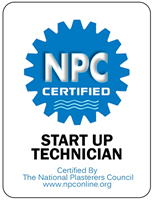Swimming pools are a great addition to any home. They provide a fun place to gather with family and friends or seek refreshment on a hot summer’s day. However, your pool may start to feel less inviting as the winter months draw near and outside temperatures begin to drop. With a pool heater, you can extend your pool-time activities long after summer has ended.
So which pool heater is best for your pool? Gas heaters and heat pumps are the two most common methods of heating a pool on the market. Both systems work toward the same goal (warm water) but use slightly different operating procedures to get there. Let’s learn more…
Gas Heaters
Gas heaters draw water from the pool and push it through a heat exchanger. The warm water is then pumped back into the pool to complete the process. These systems use fuel to heat the water and typically run on propane or natural gas.
Some heaters have heat exchangers that are made with more durable metals, like the ETi® 400 High Efficiency Heater. Titanium heat exchangers tend to last longer and are less prone to corrosion.
Heat Pumps
Heat pumps use the temperature in the air to warm the water in the pool. These systems often run on electricity or solar power. Due to their reliance on the air’s temperature, they are not suitable for climates below 45 degrees Fahrenheit.
The UltraTemp® High Performance Heat Pump has an automatic defrost feature that senses refrigerant temperature and prevents it from freezing. This feature allows the UltraTemp heat pump to operate at even lower temperatures.
Hybrid Heating
The combination of a heat pump and gas-fired system can reap the benefits of both methods, helping to lower operation costs and improve efficiency. Meet the UltraTemp ETi® Hybrid Heater, which offers the best of both heating worlds! With four operating modes and dual titanium heat exchangers, you’ll have the perfect water temperature for swimming in any season!
Choosing the right pool heater for you can be hard because not all pool heaters are suitable for all pools – they’re not one size fits all solutions. Make sure to work with your local pool professional to determine the best heater for you.
Here are a few factors to keep in mind when selecting a pool heater with your pool professional:
- Energy Efficiency – Selecting an energy-efficient model can help protect the environment and save you money. Certain models, like the ETi 400 pool heater work at a 96% efficiently rate, getting the most out of your fuel and money.
- Location – You should take your geographic location as well as the location of the pool heater into account when deciding which type of pool heater to choose.
Heat pumps are better suited to warmer climates as they use the temperature in the surrounding air to heat the water. Furthermore, if a heat pump is placed in a shady corner, it may not be able to draw as much warmth from the surrounding air.
Accessibility to a natural gas line may also impact your choice. Units that run on propane tanks are your best option if you cannot connect to underground gas lines. - Pool Size – The size of your pool may dictate which system you need. If you have a small pool, you should purchase a unit that is specially designed for a smaller body of water, like the MasterTemp® 125 High Performance Pool Heater.
Ready to heat up your pool and swim into autumn? Contact your local pool professional today:
















